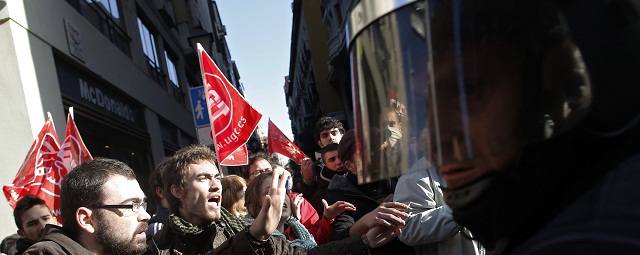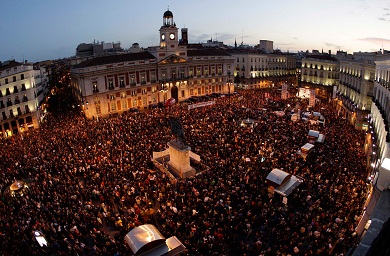This crisis had so far been peculiar in that protests, demonstrations, concentrations, strikes and complaints seemed to achieve no practical result whatsoever beyond the event itself.
In Spain, the last two general strikes–against former president Rodríguez Zapatero and against current president Mariano Rajoy–took two days from the wages of those workers who joined and made some noise, yet they couldn’t modify at all the course of reforms. Something similar occurs in Portugal and Greece, two euro partners under rescue and adjustment pressures.
The central government in Spain appeared to be vaccinated against general strikes, in spite of unions using them as a tool of their campaigning and their vindications. Other collective actions carried out by citizens without obvious militancy ended up in the same cul-de-sac.
But this week, the trend has been bucked by two movements with wide social support that have made the political power to blink and recoil. Protests against cuts on hospital services in Madrid have successfully pushed the regional government to review its plans, allowing more time for changes and reducing the scope of adjustments.
The second example, the popular outcry against forced home evictions, has brought all processes to a halt. Banks and savings banks have stopped all evictions, while the main political parties of the country are rushing negotiations to bend the law and render evictions as the least likely outcome. Many will welcome the result, but we should remind ourselves that urgency and social alarm don’t set the best environment for reasonable reforms–probably, we’ll have a plaster policy with some non-intended side effects instead of a durable solution.
Nevertheless, it is now clear that Spain’s financial entities have behaved with short-sightedness and even laziness, with insufficient explanations, protected behind walls of public money and simply waiting for bluer skies. The judiciary has been key in the recent U-turn, by the way, playing a moral card rather than following strict legal arguments.
But the government and the Parliament have showed an appalling lack of expertise in managing the economy, and its social and political consequences. This EU-wide general strike may pass unnoticed as the previous ones did. The public anger will not, however, and after what happened last September 11 in Barcelona, we already know thing can get out of hand.







Be the first to comment on "European Strike November 14"